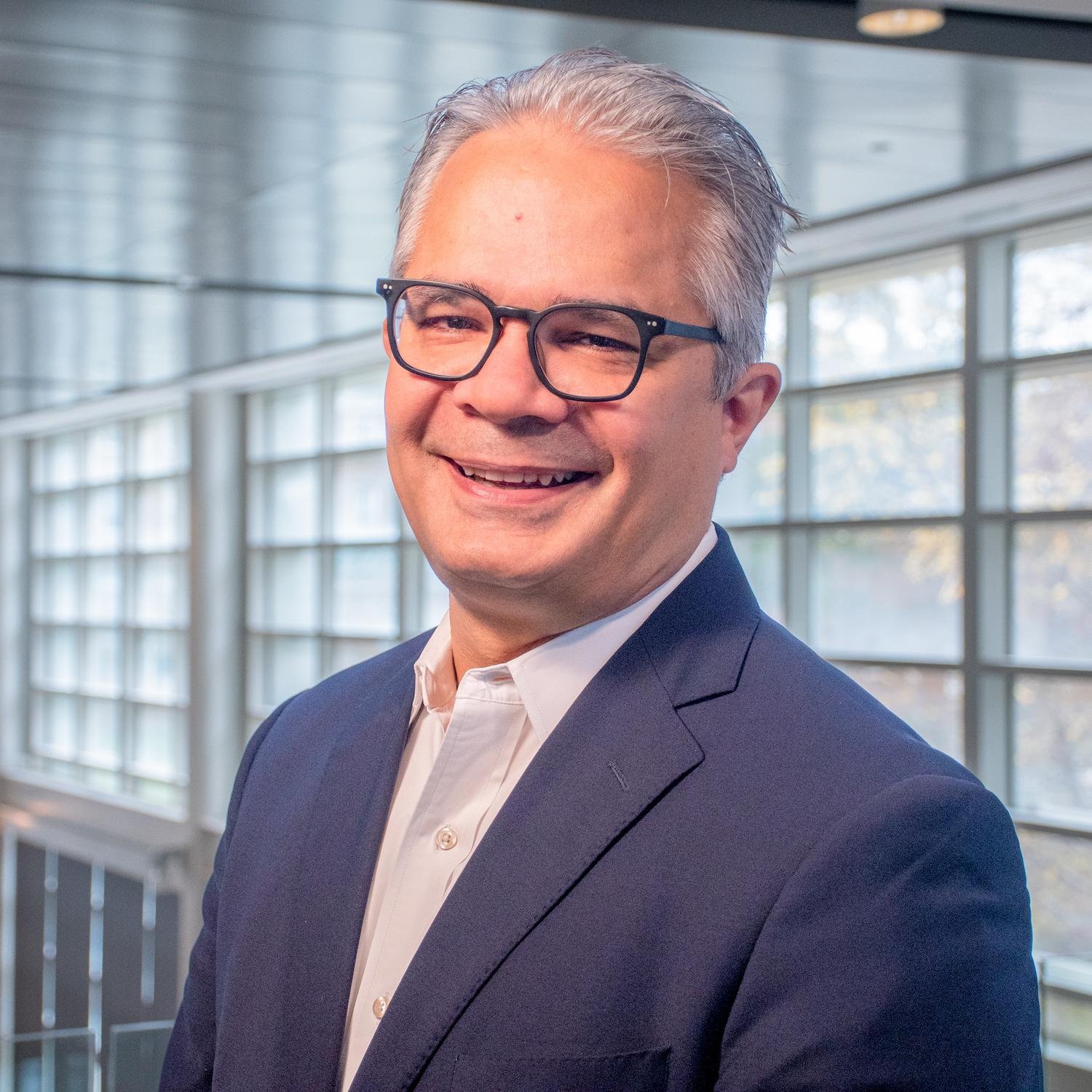Part of a Stories Beneath the Shell series covering the appointment to dean of the University of Maryland’s journalism school.
First published Thursday, April 6, 2023 in Stories Beneath the Shell.
He brought a cash-strapped University of Maryland journalism school badly-needed funding. He won the Scripps Howard Foundation’s grant for the college. He inspired the Local News Network, which matches students with local media outlets to get reporting experience. He helped make the college accessible to incoming students by stripping it of its Limited Enrollment Program status. Under his watch, a few Philip Merrill College of Journalism faculty members and a student are working to examine the state of local news in Maryland.
Rafael Lorente said he has achieved all this as associate dean for academic affairs and director of the journalism master’s program. He has been at the college since 2001 when he started as an adjunct lecturer. Now, he wants to help one of the country’s top journalism schools be even better.
But, if he’s done all that as associate dean, why does he want to become dean? Lorente declined to comment for this article in a brief phone call on Monday but gave some hints during his presentation.
“The key thing is that if you’re dean, you don’t have to ask for permission,” he told a packed room of faculty and staff assembled in Knight Hall’s Eaton Theatre on March 6.
As dean, he would lead a school that he says is already the best journalism school for data reporting and one where students learn by doing. He envisions the college collaborating with high schools. Establishing a 4+1 with the College of Information Studies, where students can get a bachelor’s degree in journalism in four years and spend only one more year at the university to get a master’s degree. Cooperating with other departments on campus to expose journalists to the work others do. Training the next generation of journalists to combat misinformation, win back the public’s trust in the media and fix what he said is a broken business model in journalism.
“Our grand challenge is in front of us,” he said.
One of the biggest challenges, he said, is the diversity of its student body. According to university data, more than 6 in 10 undergraduate journalism students are white – at a school where about 4 in 10 people are white. The journalism school is the whitest college at the university and is located in a county where not even 3 in 10 people are white. Lorente blamed the lack of diversity on the journalism school not being able to control the admissions process. Instead of the college, the Department of Undergraduate Admissions decides whether to admit students and does not collaborate with the college, former Merrill undergraduate student recruiter Terrence Britt said in a 2021 interview.
Who does and doesn’t get admitted doesn’t seem to be the problem, though. The demographics of students who apply to the college are pretty similar to the demographics of students that get into the college, Britt said. Therefore, the problem seems to lie more with recruiting diverse students to the college than getting them admitted into the college. The Department of Undergraduate Admissions’ director did not immediately respond to a phone call to her and her assistant requesting comment, nor did Merrill’s new program coordinator for undergraduate recruitment.
Lorente pointed out in the session that Merrill’s master’s degree and doctoral program, whose admissions the college controls, is much more diverse – less than half the graduate students were white in the Fall of 2022. There are, however, far fewer graduate students than there are undergraduate students. Lorente told the crowd that this diversity issue was at the top of his priority list.
“If I started as dean tomorrow, the enrollment and the diversity would be number one, two and three,” he said. “But as soon as I finish that thought I go, ‘Well, but those require fundraising.’ So I guess fundraising is one, two, and three.”
Lorente, who graduated from the journalism school in 1998, declined to comment on his fundraising strategy. He told the faculty and staff assembled that his journey to journalism started as a boy in Florida. His family couldn’t afford a newspaper subscription, but he would read the Spanish language insert of the Miami Herald that his neighbor stuck outside the door. He worked for various Florida newspapers including the Miami Herald and the South Florida Sun-Sentinel, for a little more than a decade.
Lorente seemed to enjoy a good rapport with the faculty and staff assembled. The atmosphere of the meeting was quite relaxed, in contrast to USA Today Editor-in-Chief Nicole Carroll’s presentation. He praised the staff, students, faculty, and alumni for creating “something special.”
“I see you – even without my glasses,” he joked, eliciting laughs from the crowd.
One person familiar with the presentation said that Lorente “hit it out of the park.” Not all were impressed by his presentation, though.
“Let me say that I like Rafael. I don’t think he’s visionary,” another person familiar with the presentation said. “But at this point, I think he would make a decent dean.”
Merrill College faculty and staff voted overwhelmingly to recommend that Provost Jennifer King Rice appoint Lorente as dean. She will make the ultimate decision. Sources familiar with the process said she is most likely to hire either Lorente or Carroll. Lorente has been working at a university the longest of the four finalists, which also include University of North Texas professor Dorothy Bland and American University School of Communication Dean Sam Fulwood III.
To close out his speech, Lorente said the journalism industry and the college face important challenges.
“I am optimistic about our chances of winning,” he said.


Leave a Reply